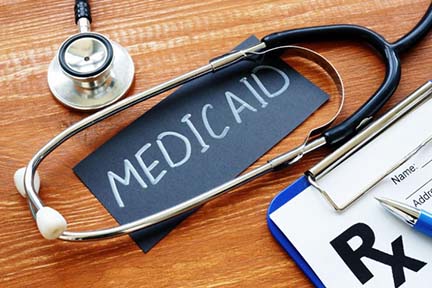|
Press Release
FOR IMMEDIATE RELEASE: June 4, 2024
CONTACT: Lynn Sutfin, 517-241-2112, [email protected]
MDHHS approves eight PIHPs to expand substance
use treatment with Recovery Incentives Pilot
Program supported through opioid settlement dollars
LANSING, Mich. – The Michigan Department of Health and Human Services (MDHHS) approved eight pre-paid inpatient health plans (PIHPs) to participate in the Recovery Incentives Pilot. This pilot, supported by $6 million in opioid settlement funds over the next three years, will expand access to evidence-based treatment for Medicaid and Healthy Michigan Plan enrollees who are living with certain substance use disorders (SUDs).
MDHHS, participating PIHPs and providers will collaborate to deliver an evidence-based treatment that provides motivational incentives, such as gift cards, to people living with an SUD who achieve their treatment goals. Medicaid beneficiaries with a diagnosis of stimulant use disorder, opioid use disorder, or both, will be eligible to participate in the pilot.
“This marks a significant milestone in our goal to make available an effective and evidence-based treatment option for beneficiaries living with substance use disorders,” said Elizabeth Hertel, MDHHS director. “We are excited to work with our PIHP partners who will play a key role in the pilot, including establishing and overseeing a network of providers who will administer this program.”
By establishing this program as a covered benefit on a pilot basis for Medicaid and Healthy Michigan Plan enrollees, MDHHS believes it can improve outcomes and support individuals in making behavior changes that drive recovery. The Recovery Incentives Pilot is one of several projects addressing SUD needs through opioid settlement dollars.
Michigan is slated to receive nearly $1.6 billion from national opioid settlements by 2040, with half being distributed to the State of Michigan Opioid Healing and Recovery Fund and the other half being distributed directly to county, city and township governments.
“By providing immediate rewards to individuals who meet their treatment goals, this pilot helps tip decision-making toward abstinence,” said Dr. Natasha Bagdasarian, chief medical executive and Michigan Opioids Task Force co-chair. “These incentives include gift cards to purchase certain items, such as food and gas, and will increase each week a participant does not use stimulants or opioids.”
MDHHS is offering the pilot for two years beginning Oct. 1. PIHPs will establish and oversee a network of providers to deliver the Recovery Incentives Pilot within their region and be responsible for administration and oversight activities including reporting, monitoring and quality improvement. Participating PIHPs were selected based on responses to a non-competitive request for applications.
The list of PIHPs participating in the Recovery Incentives Pilot are as follows:
- NorthCare Network, Region 1
- Southwest Michigan Behavioral Health, Region 4
- Mid-State Health Network, Region 5
- Community Mental Health Partnership of Southeast Michigan, Region 6
- Detroit Wayne Integrated Health Network, Region 7
- Oakland Community Health Network, Region 8
- Macomb County Community Mental Health, Region 9
- Region 10 PIHP, Region 10
“The Detroit Wayne Integrated Health Network is thrilled to participate in the Recovery Incentives Pilot to provide this treatment option across our provider network to meet the needs of Medicaid beneficiaries,” said Eric Doeh, president and CEO of DWIHN. “Expanding availability and use of recovery incentives aligns with DWIHN’s vision and long history of delivering evidence-based substance use disorder services that make a difference in the lives of the people we serve. We look forward to implementing the pilot and continuing to serve the people of Michigan.”
“Southwest Michigan Behavioral Health is proud to partner with MDHHS to expand access to effective treatment options for people living with substance use disorders,” said Bradley Casemore, CEO, SWMBH. “We look forward to implementing the pilot and improving access to treatment backed by decades of research to support individuals in southwest Michigan communities in their recovery.”
Visit the RI Pilot website for more information. For questions regarding the pilot, contact MDHHS-RecoveryIncentives@michigan.gov. |







